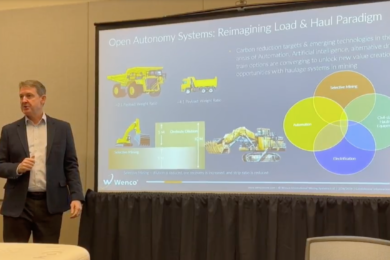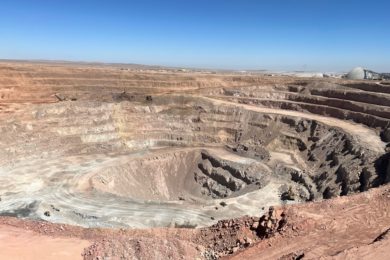Global Witness has reported that ex-rebels are involved in a mineral trade extortion racket. Campaigners are calling for immediate demilitarisation of the mining sector. Commenting on the report, Jack Telford, CEO of Gippsland says “Clearly the criminal elements (both inside and outside the DRC) retain control of the illegal tantalum trade (coltan) in both North and South Kivu, from whence >95% of the conflict tantalum originates. Moves are afoot by leading electronic companies to ensure that their products do not contain tantalum originating from the DRC.”
According to Global Witness, former rebels from the Congrès national pour la défense du peuple (CNDP) have established “mafia-style extortion rackets covering some of the most lucrative tin and tantalum mining areas in the eastern DRC.
“The ex-CNDP rebels, who joined the national army in a chaotic integration process during 2009, have taken advantage of UN-backed government offensives aimed at displacing the FDLR* militia from profitable mine sites. They have gained far greater control of mining areas than they ever enjoyed as insurgents, and in many cases have retained their old command structures and political agenda.”
Global Witness is calling on the Congolese government to immediately remove all army units from mine sites as part of a wholesale demilitarisation of the sector. It says the country’s international donors have “so far let the government off the hook on this issue and should do more to pressure Congolese authorities to take soldiers out of the mines and away from the mineral trade.”
“Last year’s high profile offensives against the FDLR paved the way for high-ranking elements of the ex-CNDP to gain and consolidate access to mineral wealth. Control of the mines has effectively been transferred from one group of armed thugs to another – the main difference being that the new ones are wearing the national army’s uniform,” said Global Witness campaigner Annie Dunnebacke, just back from a month in eastern DRC.
“For more than a decade now, the country’s mineral wealth has provided an incentive and a cash base for the conflict to continue. Unless the government and international donors implement a comprehensive strategy which tackles once and for all the economic drivers of this conflict, the local population will continue to suffer and the country’s future will continue to be blighted.”
Global Witness found that ex-CNDP fighters now in charge of the 212th national army brigade are pocketing huge sums of money each month from illegal taxes imposed on civilians working in and around Bisie, eastern Congo’s largest cassiterite mine. Most of these funds are channelled directly to ex-CNDP senior officers and to other high-ranking elements of the national army.
In some parts of North Kivu, former CNDP commanders are running a parallel administration – effectively a state within a state – through which they are illegally levying taxes on the mineral trade and other goods. The central government has virtually no authority in these areas, Global Witness says.
“The capacity of the former rebels to siphon off revenue from the mines means they could afford to re-arm if they decide peace no longer suits them,” said Global Witness campaigner Emilie Serralta, who travelled with Dunnebacke. “This is particularly dangerous considering the ex-commanders’ history of reverting to rebellion when they don’t get what they want.”
Global Witness found that the brunt of the extortion and abuse is borne by the region’s civilian population. At the Muhinga cassiterite mine in South Kivu, diggers told researchers that they are forced to pay $10 each to the military for permission to spend a night working in the shafts. Diggers, many of whom are children, also have to pay the army to use dynamite and are forced to hand over all their production on Thursdays.
“In Muhinga, workers told us they are whipped and robbed by soldiers if they fail to pay up. The army should be protecting civilians, instead they are crippling them with illegal taxes and abuse,” said Serralta.
Global Witness also uncovered evidence that companies in eastern DRC and Rwanda are still buying goods directly from militarised mines, in spite of growing international pressure to end the trade in conflict minerals.
Some in the industry have committed on paper to greater supply chain traceability and more responsible sourcing practices, but so far companies buying minerals from eastern Congo have failed to move beyond the rhetoric and put in place credible due diligence measures.
“It’s not enough for companies to rely on promises made or paperwork filled out by their suppliers. If companies want to avoid being complicit in the conflict and human rights abuses, they have to carry out investigations to find out exactly which mines the goods come from, and who has benefited from the trade,” said Dunnebacke. “Information about who controls which mine site is common knowledge in the trading towns of eastern Congo. Companies buying minerals from militarised areas have no excuse for claiming ignorance.”
Recent UN Security Council resolutions have called on governments to take measures against those sourcing minerals from armed groups in eastern Congo. Serralta said: “Western donor governments have been very vocal about commitments to bring peace and stability to eastern DRC. But the impressive rhetoric is at odds with their persistent failure to hold to account companies in their jurisdictions that buy conflict minerals. When helping Congo involves tackling a perceived national interest, however marginal, their willingness to act seems to dissolve into thin air.”
Another test of international commitment to tackle the link between the mineral trade and abuses in Congo concerns the objectives and mandate given the UN peacekeeping mission, MONUC. Over the coming weeks, UN Security Council members will be deciding on benchmarks that MONUC needs to meet before it can withdraw from DRC without triggering a relapse into instability. In light of its recent findings, Global Witness believes it is critical that these targets include comprehensive demilitarisation of the mineral sector in the east of the country.
Security Council members should also strengthen MONUC’s mandate to tackle the illicit mineral trade when this comes up for renewal in May. Peacekeepers should be given the authorisation and the means, not only to monitor and inspect mineral shipments, but also to actively support government law enforcement efforts to curtail illegal activities involving the military.
*”The Forces Démocratiques pour la Libération du Rwanda (FDLR) is a predominantly Hutu militia whose members are alleged to include perpetrators of the 1994 genocide in Rwanda,” according to Global Witness.









